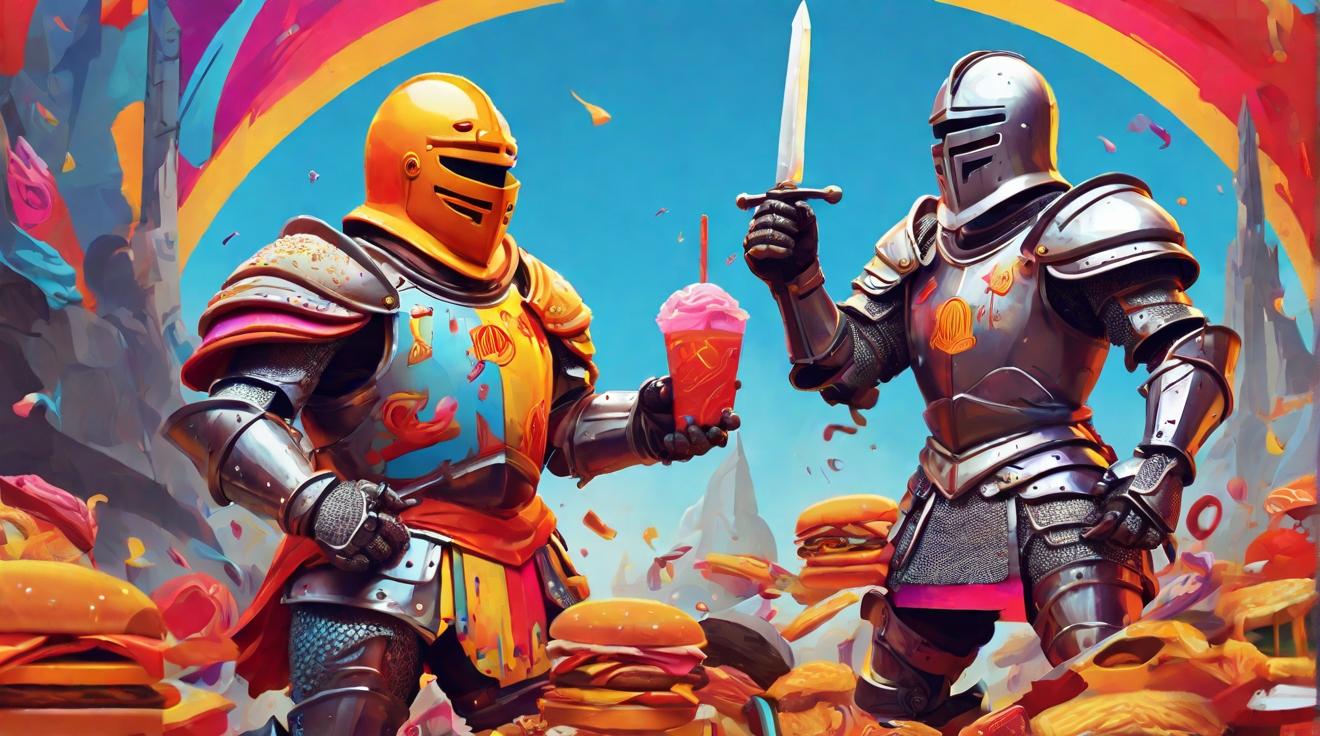McDonald's vs. Burger King: A Comprehensive SWOT Analysis of the Fast Food Titans
In an era where fast food chains are as ubiquitous as the air we breathe, two giants stand head and shoulders above the rest: McDonald's and Burger King. Both have carved out significant niches in the global market, catering to billions of hungry consumers with their unique offerings. Yet, as the landscape of consumer preferences shifts towards healthier options and technology-driven service, how do these behemoths stack up? Here's a SWOT analysis comparing the strengths, weaknesses, opportunities, and threats of McDonald's and Burger King, offering insights into their ongoing battle for fast food supremacy.
Strengths
McDonald's, with its iconic golden arches, boasts an unparalleled global presence. Operating in over 100 countries, its brand recognition and extensive franchise network stand as towering strengths. Coupled with a diverse menu that caters to local tastes and a robust supply chain, McDonald's demonstrates remarkable market dominance.
On the other hand, Burger King prides itself on its flame-grilled method, a unique selling proposition that distinguishes it from its rivals. Its ability to maintain a consistent taste and quality across locations is a testament to its operational excellence. Furthermore, Burger King has aggressively marketed itself as a brand for the youth, making significant inroads into the millennial demographic.
Weaknesses
Despite its success, McDonald's faces criticism over nutritional concerns. The growing trend towards health and wellness has put McDonald's traditional menu under scrutiny, challenging its adaptability. Additionally, the brand has encountered several public relations hurdles over employee relations and environmental practices.
Burger King, while innovative, has struggled with brand consistency. Its aggressive expansion strategy has sometimes led to a dilution of service quality, impacting customer loyalty. Moreover, it has been slower than McDonald's in tapping into emerging markets, limiting its global footprint.
Opportunities
The shift towards digital integration in the fast food sector presents significant opportunities for both McDonald's and Burger King. McDonald's has already begun to capitalize on this trend with its mobile app and self-service kiosks, improving customer experience and operational efficiency. Similarly, Burger King can leverage technology to enhance its customer service and streamline operations, especially in drive-thru services.
Sustainability is another area ripe for exploration. As consumers become increasingly conscious of environmental issues, both chains have the opportunity to lead the fast food industry in sustainability practices, from reducing packaging waste to sourcing ethically produced ingredients.
Threats
The rise of fast-casual dining options poses a significant threat to both McDonald's and Burger King. Chains like Chipotle and Panera Bread offer fresher, healthier options without a substantial price increase, appealing to the health-conscious consumer. Additionally, the global economic uncertainty can impact consumer spending power, particularly in markets where these chains have heavily invested.
In conclusion, McDonald's and Burger King continue to dominate the fast food landscape, each with its unique strengths and facing distinct challenges. As they navigate the evolving market dynamics, their ability to adapt and innovate will be crucial in maintaining their positions at the pinnacle of the industry. The ultimate winners? Consumers, who stand to benefit from improved service, healthier options, and more sustainable practices as these fast food giants evolve.













